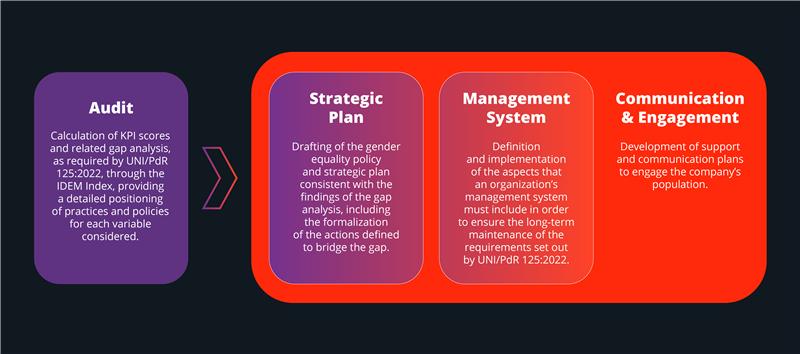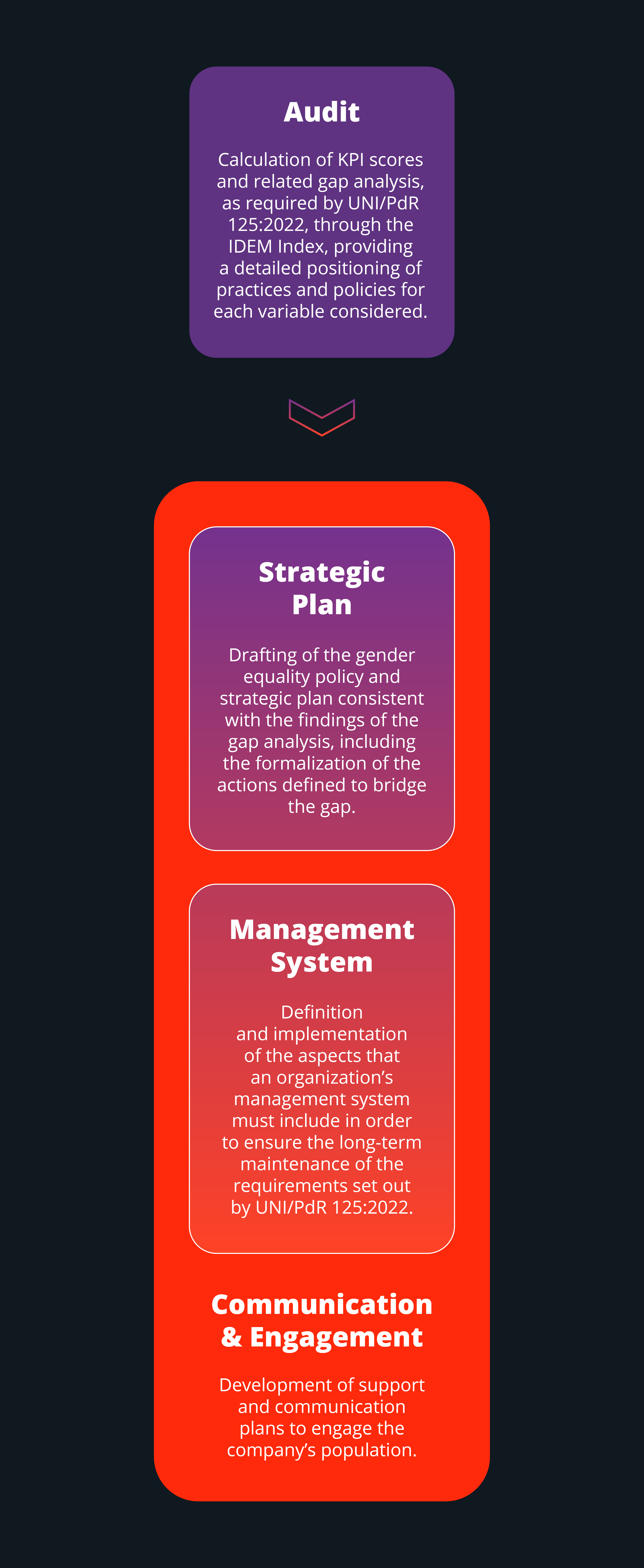Communication and Engagement:
Two Inseparable Levers for Change and Gender Equality
Every day, organizations exchange dozens of internal messages through various channels: newsletters, town halls, intranets, corporate chats. Yet how often do employees feel truly part of what they receive? Communication arrives, but it does not always resonate. The real difference lies in moving from simply informing to genuinely engaging: it’s not enough to say “what is happening”—it’s crucial to explain why it is happening and how people can play an active role in it.
This principle applies broadly but becomes vital when we talk about Diversity, Equity, and Inclusion (DE&I). These are not values that can be conveyed through slogans or campaigns alone; they require authentic participation. This is where the collaboration between OpenKnowledge and IDEM | Mind the Gap comes into play, supporting companies in gender equality initiatives by integrating communication strategies, engagement journeys, and certified measurement tools.
Beyond Information: Communication that Enables Inclusion
For OpenKnowledge, internal communication is not a mere transmission channel, but an ecosystem of practices, languages, and rituals that help people navigate, recognize themselves, and find meaning in their work.
When the focus is gender equality, communication takes on an additional responsibility: making differences visible and breaking down barriers that exclude. Inclusive communication thus becomes a lever of engagement, creating conditions where people feel heard and part of a collective project.
In increasingly complex contexts accelerated by artificial intelligence communicating inclusively means translating change into understanding and participation. Because change happens through people and people act only when they feel a sense of belonging and the opportunity to contribute.
Communication, Engagement, and Inclusive Culture: A Virtuous Cycle
If communication enables engagement, it is engagement that shapes and renews organizational culture. Culture does not live only in values written in strategy documents, but in everyday conversations, symbols, and ways of relating.
When addressing gender equality, communication cannot remain neutral: it must use languages, stories, and practices that give voice to everyone. To support organizations, we guide them with three key principles:
Total Experience – Consistency Inside and Out
Consistent internal communication strengthens organizational identity. In DE&I, this means aligning what a company declares externally with what people experience internally—for example, through governance models that ensure minority representation, transparent career policies, or monitoring tools for pay equity. Only then does the message become a lived experience.
Change Maker – Enabling Transformations
In transformation processes such as revising HR policies or achieving gender equality certification it’s not enough to state “what is changing.” Inclusive narratives are needed to build meaning and enable people to become active participants.
People Centric – Putting People First
Engagement thrives on simple yet deeply human elements: attention, recognition, and dialogue. In gender equality, this means listening to diverse experiences, amplifying underrepresented voices, and building stronger relationships between employees and leadership.
From Consistency to Tools: Ambassadors and Inclusive Language
New generations quickly recognize when an organization talks about inclusion only to obtain certifications or enhance reputation. The risk is “DE&I washing”.
The real challenge is to transform principles into daily, visible, and credible actions. One effective model is ambassadorship: internal figures who act as authentic spokespersons of company values, bridging the gap between management and employees and translating abstract principles into recognizable practices.
In several projects, for example, we recruited and trained groups of ambassadors, co-creating with them concrete initiatives on gender equality and supporting their implementation. This approach fosters trust and belonging because it makes change authentic and less perceived as “top-down.”
At the same time, tangible tools such as a manifesto on inclusive language make a difference in everyday life with small but meaningful steps. The words we use are never neutral: they convey visions, roles, and expectations. Inclusive language helps overcome entrenched stereotypes and opens spaces for recognition for all.
The Role of UNI/PdR 125:2022 Certification
This commitment to consistency finds its focal point (and at the same time a new beginning) in the UNI/PdR 125:2022 certification the Italian reference framework that defines guidelines and requirements for gender equality in organizations.
The certification helps companies assess, manage, and improve their gender equality policies through indicators covering six key areas:
- Culture and strategy
- Governance
- HR processes
- Growth and inclusion
- Pay equity
- Parenthood and work-life balance
Beyond ethical and cultural value, it also brings tangible economic, competitive, and reputational advantages:
- 1% reduction in social security contributions, up to €50,000 per year (INPS);
- Transparency on pay equity, which is nearly 13 times more relevant for retention compared to benefits or higher salaries (Josh Bersin);
- Stronger employer branding and talent attraction.
The Synergy between IDEM | Mind the Gap and OpenKnowledge
This is the foundation of the collaboration between IDEM | Mind the Gap and OpenKnowledge. IDEM | Mind the Gap—a university spin-off created through the partnership between the Marco Biagi Foundation of the University of Modena and Reggio Emilia and Jobpricing—has developed an original multidimensional model for measuring gender equality, supporting companies through diagnostics and UNI/PdR 125:2022 certification.
Through this synergy, IDEM | Mind the Gap provides auditing and measurement, while OpenKnowledge contributes its expertise in cultural transformation processes, including:
- Training strategies and digital learning
- Internal communication and employer branding campaigns
- Employee engagement & gamification programs
- Analytical tools such as Organizational Network Analysis
- Digital adoption initiatives and new ways of working

Source: OpenKnowledge, IDEM

Source: OpenKnowledge, IDEM
In this way, certification is not a bureaucratic milestone but becomes:
- A driver of culture, fostering pride and belonging
- A catalyst for change, amplifying new voices and perspectives
- A tool for employer branding, strengthening reputation and talent attraction
- A foundation for ambassador communities, consolidating change from the ground up
Thus, UNI/PdR 125:2022 certification through the joint work of IDEM and OpenKnowledge becomes not only a competitive requirement but also a tool to strengthen identity, belonging, and credibility.
However, certification represents only one part of the collaboration. The joint commitment extends to other key areas, including:
- ISO 30415, the international standard providing guidelines for HR management with a specific focus on diversity and inclusion;
- ISO 53800, which promotes gender equality and women’s empowerment in public and private organizations;
Together with the EU Pay Transparency Directive (2023/970), recently approved to reinforce the principle of equal pay for equal work or work of equal value. The directive aims to reduce the gender pay gap through concrete transparency and accountability measures involving both employers and employees. Member States must transpose it into national law by June 7, 2026.
In conclusion, communication, engagement, and gender equality are not optional activities but strategic levers for building culture, supporting innovation, and enabling organizational growth through people.
The future of corporate communication is not neutral but intentional: it does not merely talk about equity it acts with equity.
Authors
Giuseppe Giordano and Giorgia Monti

 17 September 2025
17 September 2025
